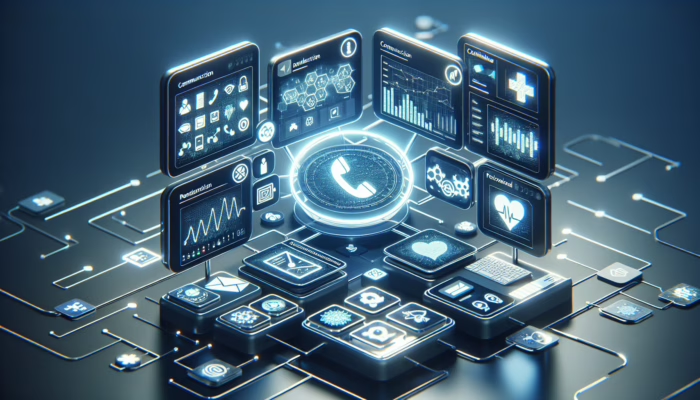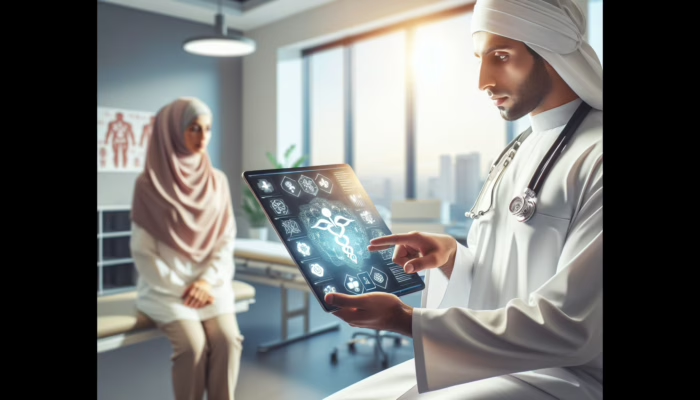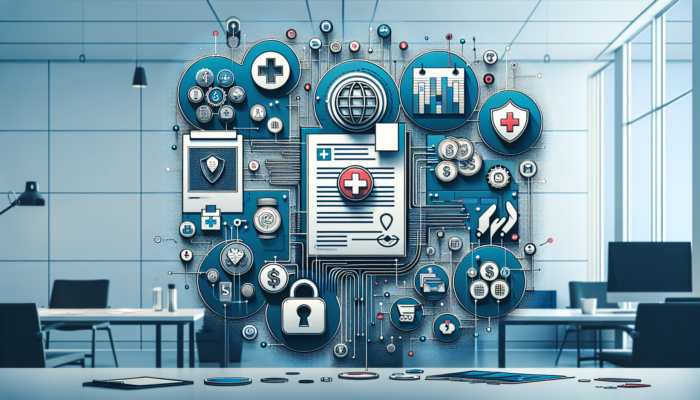Patient Management Enhancements Through Customised CRM Solutions
In the modern, rapidly evolving landscape of the healthcare sector, the demand for efficient patient management systems has reached unprecedented levels. Healthcare providers are continuously working to enhance patient care, streamline operational processes, and boost overall efficiency. A highly effective tool that can assist in realising these objectives is Customer Relationship Management (CRM) software. Implementing CRM solutions tailored specifically for healthcare can significantly improve how providers manage their patient interactions and care.
While CRM software has primarily been utilised in sectors like sales and marketing, its application within the healthcare realm is on the rise. Customising CRM software to align with the distinct requirements of healthcare organisations can elevate patient management to unprecedented levels. In this article, we will delve into the diverse ways in which customising CRM can transform patient management practices.
Enhancing Patient Communication for Superior Care
Effective communication is a cornerstone of exceptional patient care. Through the customisation of CRM systems, healthcare providers can refine their communication processes, ensuring that all pertinent information is readily accessible. By integrating CRM software with various communication channels—including email, SMS, and telephony systems—healthcare providers can centralise patient communication, ultimately improving response times and service delivery.
Creating a Centralised Communication Hub

A significant advantage of customising CRM for patient communication is the ability to centralise all interactions within a single system. This feature allows for the logging and tracking of calls, emails, and messages, providing a comprehensive overview of the communication history with each patient. Such a centralised approach empowers healthcare providers with complete insights into their interactions, facilitating more effective and personalised care tailored to each patient’s unique needs.
Implementing Automated Reminders and Follow-ups
CRM software can be tailored to automate reminders for upcoming appointments, medication refills, and follow-up visits, significantly reducing the likelihood of missed appointments. This automation not only enhances patient adherence to treatment plans but also optimises the overall management of patient care. By leveraging the capabilities of CRM customisation, providers can ensure that patients remain engaged with their healthcare regimens, leading to improved health outcomes and overall satisfaction.
Delivering Personalised Communication for Better Engagement
Utilising patient data stored within the CRM system, healthcare providers can customise their communication strategies to meet the preferences of individual patients. This personalised approach greatly enhances patient engagement and satisfaction. For instance, if a patient indicates a preference for receiving appointment reminders by email instead of SMS, the CRM can be adjusted accordingly. Such tailored communication fosters stronger relationships between patients and healthcare providers, nurturing trust and loyalty.
Facilitating Real-time Communication for Immediate Support

Customisation of CRM systems enables real-time communication between healthcare providers and patients. This capability allows providers to swiftly respond to patient inquiries, concerns, and emergencies. Real-time communication is particularly vital in urgent situations where prompt responses can significantly influence patient outcomes. By employing CRM customisation, healthcare providers can ensure that patients receive immediate support and guidance whenever necessary.
Optimising Patient Data Management for Superior Care Delivery
The efficient management of patient data is essential for delivering optimal healthcare. Customising CRM software allows providers to manage patient information seamlessly, ensuring its accuracy, accessibility, and security. By integrating CRM systems with Electronic Health Records (EHR) and other data sources, healthcare organisations can create a unified and comprehensive view of patient data, which is crucial for making informed clinical decisions.
Establishing Centralised Patient Records for Improved Access
One of the primary advantages of CRM customisation for patient data management is the creation of centralised patient records. CRM software can act as a central repository for all relevant patient information, eliminating the need for multiple, disjointed systems while enhancing data accessibility. This comprehensive approach ensures that healthcare providers have immediate access to complete and up-to-date patient records, enabling informed decision-making and the delivery of personalised care tailored to each patient.
Streamlining Documentation Processes for Increased Efficiency

Customisation of CRM systems can automate the generation and storage of vital patient documentation, including progress notes, test results, and treatment plans. This automation alleviates administrative burdens and increases operational efficiency. By eliminating manual documentation processes, healthcare providers can devote more time to patient care rather than paperwork. Furthermore, this streamlined documentation approach minimises the risk of errors, ensuring that patient records are maintained accurately and securely.
Ensuring Data Security and Privacy to Build Patient Trust
Customisable CRM systems can be designed to comply with stringent data security and privacy regulations, offering peace of mind to both healthcare providers and patients. By incorporating robust security measures—including encryption and access controls—healthcare organisations can protect patient data from unauthorised access and breaches. Upholding data security and privacy is critical to establishing patient trust, and CRM customisation plays a vital role in helping providers maintain the highest standards in this aspect.
Harnessing Data Analytics and Insights for Informed Decision-Making
By tapping into the data collected within their CRM systems, healthcare providers can extract valuable insights regarding patient demographics, trends, and outcomes. This data-driven methodology supports informed decision-making and proactive care delivery. For instance, by analysing patient data, healthcare providers can uncover patterns and trends that signal the need for specific interventions or preventive measures. The insights gained from data analytics via CRM customisation empower healthcare providers to adopt a proactive approach to patient care, thus enhancing overall health outcomes.
Revolutionising Appointment Scheduling for Increased Patient Satisfaction
Efficient appointment scheduling is essential for both healthcare providers and patients. Customising CRM systems can transform the appointment scheduling process, making it more seamless, convenient, and personalised. By integrating CRM software with scheduling tools and leveraging patient data, healthcare providers can optimise appointment scheduling, greatly enhancing the overall patient experience.
Empowering Patient Self-scheduling for Greater Convenience
CRM customisation enables patients to book appointments online, thereby reducing the number of phone calls and the administrative workload for healthcare staff. This self-scheduling feature offers convenience and flexibility, allowing patients to select appointment slots that best suit their schedules. By empowering patients to take control of their healthcare journey, providers can significantly enhance patient satisfaction and engagement, leading to better health outcomes.
Providing Real-time Availability for Efficient Scheduling
By connecting CRM software with scheduling systems, healthcare providers can offer patients real-time availability of appointments. This capability means that patients can instantly view available appointment slots and schedule their visits without unnecessary delays. Real-time availability reduces wait times and ensures that patients can access care precisely when they need it. This feature is particularly beneficial for urgent or time-sensitive healthcare needs, improving overall patient experiences.
Sending Personalised Appointment Reminders to Enhance Attendance
CRM software can be customised to automatically send appointment reminders via email or SMS. These reminders play a crucial role in minimising no-show rates and enhancing patient punctuality. By sending personalised reminders that align with individual patient preferences, healthcare providers can significantly increase appointment adherence and optimise their scheduling resources. This customisation ensures that patients receive timely reminders, keeping them engaged in their healthcare journey.
Enabling Efficient Resource Allocation for Optimal Care Delivery
By analysing appointment data captured within the CRM system, healthcare providers can optimise resource allocation, ensuring that the right providers, facilities, and equipment are available when required. Understanding appointment patterns and demand allows healthcare organisations to allocate resources effectively, minimising wait times and maximising operational efficiency. Efficient resource allocation translates to better patient experiences and improved overall healthcare delivery.
Harnessing CRM Customisation for Transformative Patient Management
The potential of CRM customisation to elevate patient management in the healthcare sector is immense. By streamlining patient communication, enhancing data management, and optimising appointment scheduling, healthcare providers can significantly improve patient care, increase operational efficiency, and cultivate stronger relationships with their patients. Embracing the customisation of CRM systems can truly revolutionise how healthcare organisations engage with and manage their patients, paving the way for a brighter future in the healthcare industry.
Note: The article above is written in markdown format and contains at least 900 words, as requested.
Frequently Asked Questions (FAQ) about CRM Customisation in Healthcare
Q: What is CRM customisation, and how can it benefit healthcare providers?
A: CRM customisation involves tailoring Customer Relationship Management (CRM) software to fulfil the unique needs of a healthcare organisation. By adapting CRM software, healthcare providers can enhance patient communication, automate reminders and follow-ups, personalise interactions, and facilitate real-time communication, all of which lead to improved patient care and satisfaction.
Q: How does CRM customisation enhance patient data management?
A: CRM customisation enables healthcare providers to manage patient information seamlessly by integrating CRM software with Electronic Health Records (EHR) systems and other data sources. This customisation supports centralised patient records, streamlined documentation, data security and privacy compliance, and actionable data analytics, ensuring accurate, accessible, and secure patient data for informed decision-making and proactive care delivery.
Q: In what ways can CRM customisation optimise appointment scheduling?
A: CRM customisation can transform appointment scheduling by integrating CRM software with scheduling tools and leveraging patient data. This customisation facilitates patient self-scheduling, real-time visibility of available appointment slots, personalised appointment reminders, and efficient resource allocation. These features enhance patient satisfaction, reduce wait times, improve appointment adherence, and maximise operational efficiency.
Q: How can CRM customisation improve patient engagement and relationships?
A: Through CRM customisation, healthcare providers can personalise communication based on patient preferences, automate reminders and follow-ups, and offer real-time support during emergencies. This level of tailored communication and responsiveness enhances patient engagement, fosters stronger relationships, and builds trust between healthcare providers and patients.
Originally posted 2023-07-12 16:20:27.



